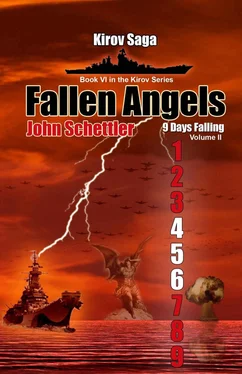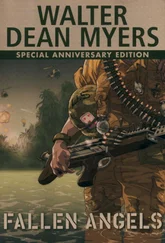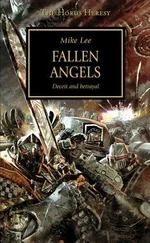Enright wasn’t sticking around in his rapidly dissipating smoke screen to find out anything more. He had a contact bearing and ordered a quick dive to set a new course with Gato to the northeast. A brief VHF call had confirmed that Atule was also in the vicinity, due west of Gato’s position.
“Something is up there alright,” he said to Bernard. “Strangest thing I ever saw. Well…now we have three bad boys out here in a good position to sweep north. So that’s just what we’ll do.” It was a mistake he would live to regret, but orders were orders, and he ordered a five point turn and ahead full.
Torpedo man Don Sweeney was on the Atule stowing some personal effects in his duffel bag when the alarm sounded. He had been looking over his certificates, and thinking of home back in Illinois. One was his “Sacred Order Of The Golden Dragon,” which he picked up last month on the 8th of July when the boat crossed the 180th Meridian in to Japanese home waters. Everybody got one, but to the folks back home it might seem a pretty big deal. He could display it with the Asiatic-Pacific WWII Victory Medal that he would get as soon as they made port again. He’d frame those two with the boat’s insignia patch of the torpedo toting fish, and it would make a real nice keepsake—or so he had been telling virtually everyone on the boat the last three days.
“Look Sweeney,” said his mate Paul Dunn. “Stow that crap and let’s get forward. Can’t you hear that alarm?”
The two men rushed to their post, surprised to find the duty crews already loading the forward tubes as though combat was imminent.
“Hey, what’s going on?” asked Sweeney. “We run into something?”
“Who knows, Sweeney. Just lend a hand and help run that 21 incher up to the kill tube. They got something on radar and we’ve got a job to do, Kapish?”
“Well, hell,” Sweeney protested. “Isn’t the war over? You’d think the Japs would know they were beat by now.”
“These ain’t Japs. Didn’t you hear? It’s Russian ships we’re after now, or maybe they’re after us. It’s the same both ways. Run that fish up!”
* * *
“Concontact confirmed by KA-40 with visual sighting and hard location on sonobuoy. Three submarines. Designating Alpha One, Two and Three.” The ship was at action stations and Tasarov was coordinating the effort with Admiral Golovko and the helos via live data link.
Karpov seemed edgy, pacing, his attention still torn between Nikolin where he was broadcasting his message to the Americans and the ongoing developments at the sonar station. Now it was not just a single contact, but three. The silence from the Americans was damning, at least in his mind. If this was their only response, to attempt a stealthy submarine attack after the massive demonstration of his firepower, then the Americans were more foolish than he could imagine. He would let them know he was well aware of their little ploy, and in no uncertain terms.
“Tasarov…Select one of the enemy contacts and order the KA-40 to put a torpedo on it. This has gone on long enough. If they will not listen to reason, then we’ll speak to them in another language.”
The language was the APR-hydrojet acoustic homing torpedo dropped by the KA-40. It fell swiftly into the water, listened to locate its contacts and then responded to Tasarov’s random selection of one target—the Atule . It was soon moving at 80 kilometers per hour, with a kill probability of over 90% that did not disappoint.
Weeks later a young Japanese boy named Kanji Akiro would be wading in the surf on the northern coast of Hokkaido Island when he saw something bright orange floating in the water. The tide brought it nearer, and he reached to grasp it before the sea could claim it again, peering at the curious image of a yellow dragon on an orange background surrounded by what appeared to be braided rope. The markings were strange and unfamiliar to him, and barely readable on the sodden paper.
It was a certificate assuring membership the “Sacred Order Of The Golden Dragon,” and if Kenji Akiro could have read the English he would have seen it belonged to Donald M. Sweeney. The duffel bag it had been hastily stuffed into when the last battle stations alert was sounded for the Atule would be floating in on the surf in another five minutes.
Atule’s war was over, but the next war was just getting started. Word of the sub’s sinking passed from Enright’s watch on the Archer-Fish and right up the chain of command through HQ Submarine Squadron Ten, Commander Submarine Force, Pacific, and from there on to Commander In Chief, Pacific Fleet, Chester Nimitz.
The Admiral shook his head, clearly distressed, and simmering with obvious anger. The Russians had just crossed a line in his mind and there was no going back now. If the attack on Wasp was not reason enough for reprisal, this deliberate sinking of a US sub on a recon mission was the last straw. His message to his fighting front line Admiral Halsey was brief and to the point.
“Get up there and sink the bastards—and do it now.”
Haseldenlistened intently, hearing the odd thumping from the dark edge of the night and passing that uncomfortable moment between sound and sense when you hear something, try to locate and identify it, and cannot do so. The others could hear it as well, a deep thumping that seemed to grow louder with each passing second. Their eyes seemed to search this way and that as they listened. What was it?
They had been discouraged to find that the truck column passed through Makhachkala, thinking it would not stop, but then their hopes were bolstered. The column began to slow, and come to a halt. “Bloody hell,” said Haselden. “We’ve come much farther south than I had hoped, we’re near the harbor!”
“Who would have thought they would just keep on like this,” said Sutherland. “Now what? It’s nearly dawn and the place will be crawling with Russian military. There was supposed to be a big operation underway here to jimmy the oil rigs and move all the equipment to Kazakhstan, at least according to our briefing.”
The land here formed a great isthmus that served as a breakwater for the harbor. They were very near the base of that isthmus close to the coast where the road passed the railway station and oil loading depot.
“Things may get dicey,” said Haselden. “We may have to get off quick and try to melt away and get to some cover before the others discover they’ve lost three soldiers. We’ll work out what to do next once we know what we’re looking at.”
Haselden peered out the back tarp and saw obvious signs of war here. Some of the buildings had been bombed and burned, and one industrial district had been razed by the Russians themselves to destroy equipment and remove drilling rigs.
All he could think of was the mission, and what they had to do to get this man Orlov and try to save their own hides in the process. At long last the column came down to the edge of the city, very near the water. They could smell the tang of the Caspian Sea, the brine on the quay and hear the occasional sound of a bell on small fishing boats out early for the morning catch.
“Shouldn’t be any trouble finding a boat here,” said Haselden.
“Maybe so,” said Sutherland, but getting it north and over the Caspian to Fort Shevchenko again will be a tall order, Jock, particularly if the Russians have anything to say about it.”
“Hush up, I think they’re slowing down to stop here. Get the lead out of your legs, boys. This is where we get off. There’s a warehouse off the right side of the road. Make for that and be quick about it!”
Читать дальше











